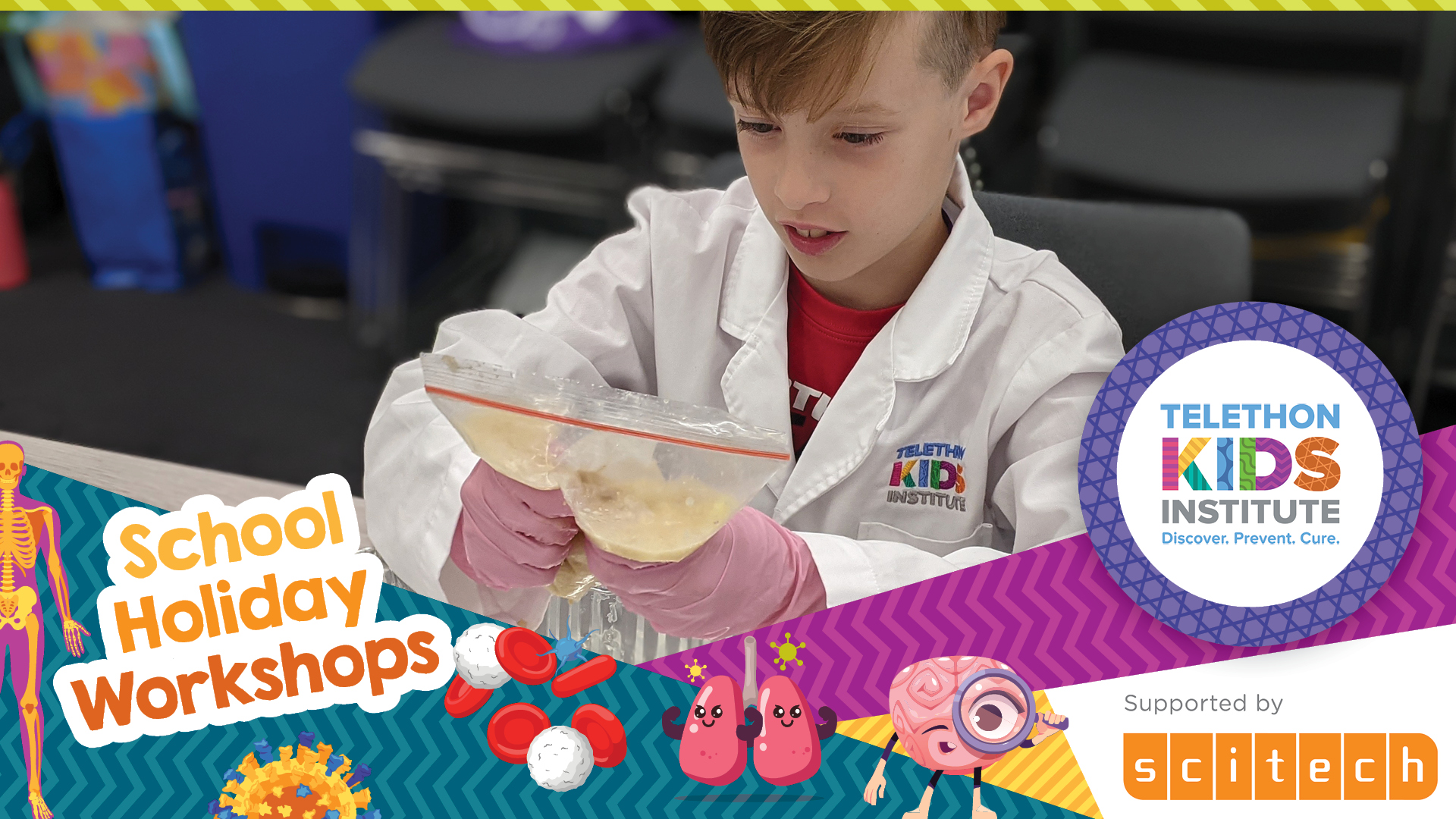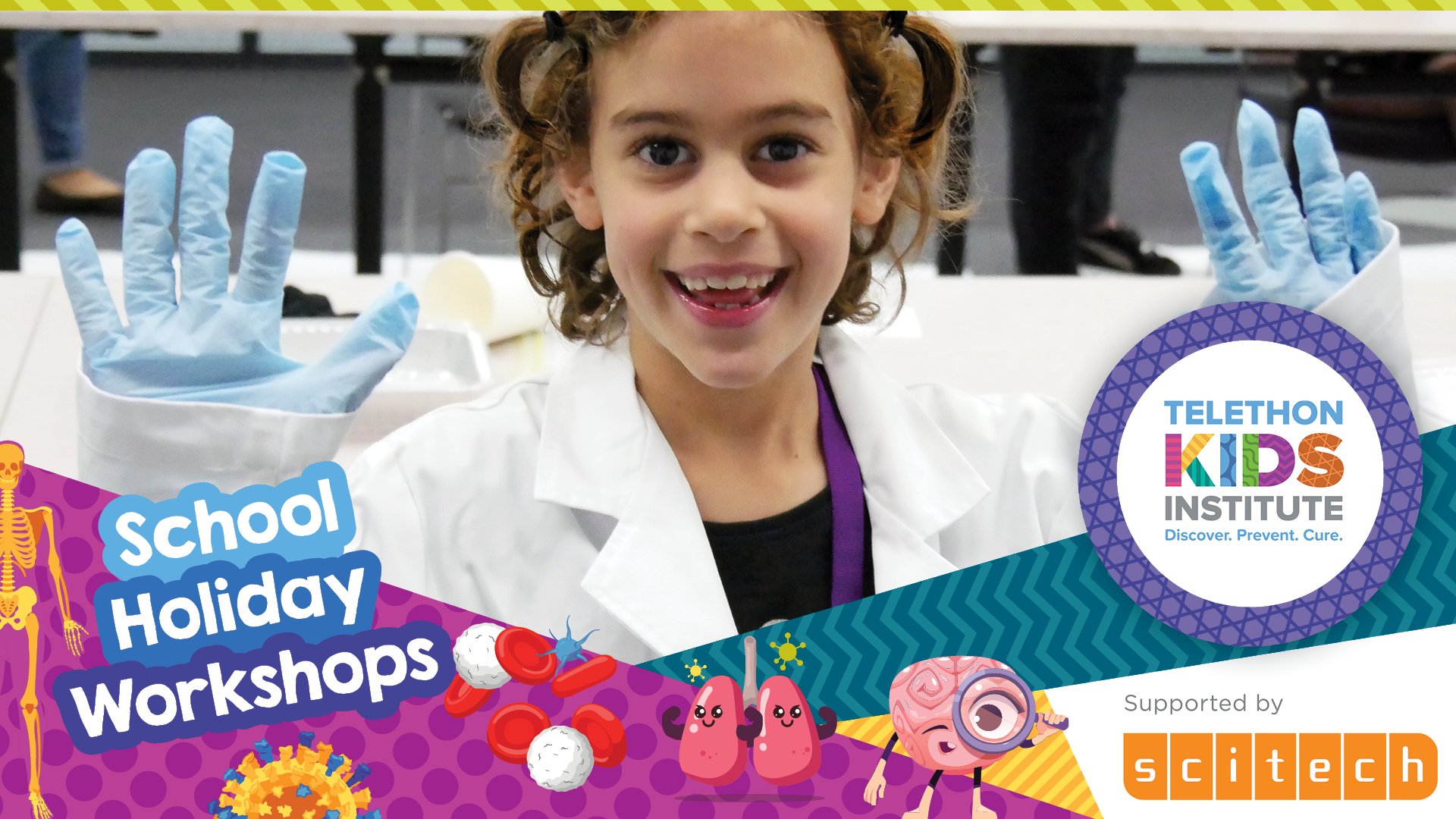Search
Showing results for "early lung health"
Dr Anthony Bosco, Professor Steve Stick, Professor Andrew Whitehouse, Dr Raelene Endersby and Dr Luke Garratt know how fortunate they are to have
Research
Estimating the Impact And Costs of Antimicrobial Resistance (AMR) at Perth Children’s HospitalAMR is a rapidly growing challenge and has been identified as one of the World Health Organizations top 10 global health threats, with the potential to undo many of the health gains observed over the last century.
On this Research Impact page, we list stories helping demonstrate how we collaborate with other leaders, innovators, communities, and international stakeholders to ensure excellent research results. The better our results, the better the chances of research making a real difference.

News & Events
We're back at Scitech this July!Everything you need to know to book tickets to our upcoming school holiday workshops in July held at Scitech!

News & Events
School holiday workshops at ScitechEverything you need to know to book tickets to our upcoming school holiday workshops in April held at Scitech!

News & Events
20-year MAVRIC study celebrates recruitment of its 1000th participantThe MAVRIC (Mechanisms of Acute Viral Respiratory Infection in Children) study recently celebrated the recruitment of the 1000th participant to the study, eight-year-old Sullivan Strahan.
Research
Defining the pediatric response to SARS-CoV-2 variantsThe global population has been severely affected by the coronavirus disease 2019 (COVID-19) pandemic, however, with older age identified as a risk factor, children have been underprioritized. This article discusses the factors contributing to the less severe response observed in children following infection with severe acute respiratory syndrome coronavirus 2 (SARS-CoV-2), including, differing viral entry receptor expression and immune responses.
Research
Role of viral and bacterial pathogens in causing pneumonia among Western Australian children: A case-control study protocolWe aim to determine the contribute of bacteria and virus to childhood CAP to inform further development of effective strategies.

News & Events
Term 3 school holiday workshops at ScitechEverything you need to know to book tickets to our upcoming school holiday workshops held at Scitech!
Research
A 15-Year Old Burmese Girl With Hemoptysis: A Case ReportA 15 year old girl, born in Hakha, Myanmar, presented with 2 months of intermittent hemoptysis 3 years after immigrating to Australia, via Malaysia.
